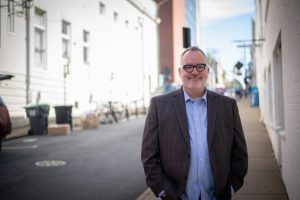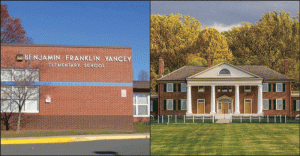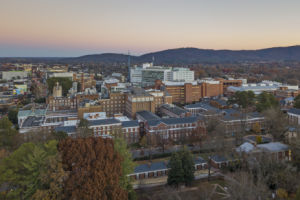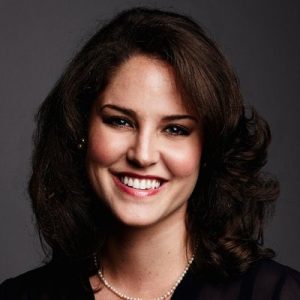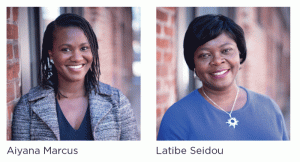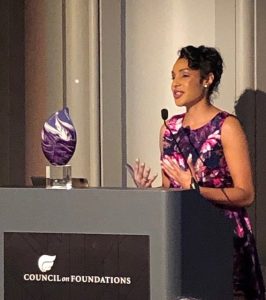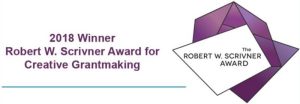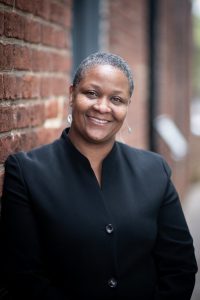Dear Friends,
For the past two years, your community foundation has been on a journey of self-reflection and exploration. The citizens who started the Foundation in 1967 had a vision to establish a lasting community resource dedicated to this region that was rooted in a keen awareness that people living together in community are necessarily interconnected. Our founders believed that in order to thrive together, we had to value and invest in one another.
Today, we carry forward that same foundational belief: We can only thrive as a region if all of our neighbors have an opportunity to thrive. It is important to acknowledge that our region does not work the same way for everyone, and that some of our neighbors face barriers that we may not experience or even know exist. In our self-reflection as an organization, our board and team has recognized that in order to realize fully the vision of our founders—and one that so many generous, passionate, and civic-minded friends have helped to advance over 50 years—we must center our work in equity.
What do we mean by “equity”?
In today’s world, I have found “equity” used and misused in many different ways. Our board and team have begun wrestling with our own understanding in order to clarify for ourselves what we mean when we say we value equity, and what that value means for our organization and practice.
For us, “equity” is about systems of power—who has it, who doesn’t, and how it shapes access to opportunities and resources. Equity is about fairness, access and equal opportunities. In our grantmaking, we have seen power differentials between funder and grant partner, large and small nonprofit, urban and rural organization, institution and individual. We have also seen power structures that were deliberately designed to shape the opportunities and resources available to people with different characteristics, including age, race, ethnicity, gender, income, geography, physical ability, and many others. Many of our grant partners are working to address the legacy of these systems of power that have resulted in disparities in home ownership, wealth accumulation, economic mobility, participation in the democratic process, access to food, education attainment, and health and wellbeing.
As we consider our Foundation mission to improve quality of life for all residents in our region and also our role as a steward of philanthropic resources, we believe that identifying power structures and the barriers they create for some of our neighbors is critical. Equity is not charity, nor it is about shame and blame. For us, we believe we can achieve deeper impact if we and our partners are deploying resources in ways that consider the unique circumstances, power differentials, historical contexts, and systemic barriers that affect community members. Additionally, we can better steward the funds entrusted to us if we invest in targeted strategies that carefully and intentionally consider differences, rather than rely on a one-size-fits-all approach. Centering our work in equity is not a departure from our mission; rather, it is a deepening of our commitment to the founding vision.
What steps are we taking?
In April, we launched an engagement with OpenSource Leadership Strategies to help us understand equity and what it means for our work. In order to build our understanding of how systems of power function, we are starting with the careful study of a system of power that affects the greatest number of people—race. We made the decision to focus on one system to start because we understand that each system of power has a unique history and legacy and deserves dedicated attention. It is our intention to use this initial experience to build our muscle to study other systems of power—and the intersection of those systems—that impact people across our region.
Our work this year will include:
- An all-day retreat and training for our whole board and team to develop a shared language and understanding of how race functions as a system of power
- Skills-building and leadership development for a core group of board and team members
- An equity assessment of our entire organization
- Action plans to guide and inform our next phase of work
We expect our equity journey to be ongoing. We also expect it to change us, both personally and institutionally. We do not expect our founding vision to change, nor our commitment to partnership, impact, transparency, and engagement. It is my sincere desire that this journey will better equip us to serve you—our grant partners, donors, and friends—and strengthen our work together in pursuit of a thriving region that works for everyone.
Warmly,
Brennan Gould, President and CEO
